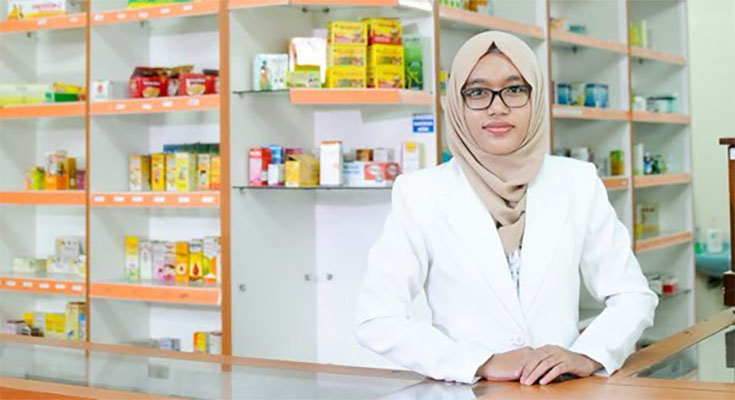The process of developing new drug pharmacists is a critical component in the advancement of pharmaceutical science and patient care. This intricate field encompasses the creation, evaluation, and implementation of new therapeutic agents by pharmacists who specialize in drug development. pafikotabantul.org Their role is pivotal in translating scientific discoveries into tangible medical solutions that enhance patient health outcomes.
The Role of Pharmacists in Drug Development
Developing new drug pharmacists are involved at multiple stages of the drug development process, from initial discovery through clinical trials to final market release. Their expertise is crucial in ensuring that new drugs are safe, effective, and meet regulatory standards.
Pharmacists in drug development collaborate with researchers, chemists, and medical professionals to design and test new medications. Their responsibilities include formulating drug compounds, optimizing drug delivery systems, and conducting rigorous testing to assess efficacy and safety.
The Drug Discovery Phase
The journey of developing new drug pharmacists begins with the drug discovery phase, where potential therapeutic agents are identified and evaluated. During this phase, pharmacists work closely with researchers to explore novel compounds and assess their potential for treating specific diseases.
Pharmacists contribute their knowledge of pharmacokinetics and pharmacodynamics to guide the selection of drug candidates. They also help in designing experiments to test the biological activity of these compounds, ensuring that they interact with the intended targets in the body.
Preclinical Testing
Once promising drug candidates are identified, developing new drug pharmacists play a critical role in preclinical testing. This stage involves conducting laboratory and animal studies to evaluate the safety and effectiveness of the drug before it is tested in humans.
Pharmacists are responsible for designing and implementing preclinical studies, including assessing the pharmacological properties of the drug, such as absorption, distribution, metabolism, and excretion. They also monitor for any potential toxicity or adverse effects, which is essential for determining the drug’s safety profile.
Clinical Trials
The transition from preclinical to clinical trials marks a significant milestone in developing new drug pharmacists. Clinical trials are conducted in multiple phases to evaluate the drug’s safety, efficacy, and optimal dosage in human subjects.
Pharmacists are involved in designing clinical trial protocols, recruiting participants, and managing the administration of the drug during the trial. They ensure that trials are conducted according to regulatory guidelines and that data is accurately recorded and analyzed.
Additionally, developing new drug pharmacists provide expertise in monitoring patients for adverse reactions and managing any side effects that arise during the trials. Their role is crucial in safeguarding patient safety and ensuring that the drug meets the desired therapeutic goals.
Regulatory Approval
Securing regulatory approval is a critical step in the drug development process, and developing new drug pharmacists play a key role in this phase. Pharmacists prepare and submit detailed documentation to regulatory agencies, including data from preclinical and clinical studies, to demonstrate the drug’s safety and efficacy.
They work closely with regulatory authorities to address any concerns or questions that arise during the review process. Pharmacists also ensure that all required documentation is complete and compliant with regulatory standards, facilitating a smooth approval process.
Post-Marketing Surveillance
After a new drug is approved and released to the market, developing new drug pharmacists continue to play an essential role in post-marketing surveillance. This phase involves monitoring the drug’s performance in real-world settings and collecting data on its long-term safety and effectiveness.
Pharmacists track adverse drug reactions reported by healthcare providers and patients, analyzing this data to identify any emerging safety issues. They also contribute to the development of risk management strategies and provide ongoing support to healthcare professionals and patients.
Innovations in Drug Development
Developing new drug pharmacists are at the forefront of innovations in drug development, including advancements in personalized medicine, biotechnology, and drug delivery systems. They explore new methods for improving drug efficacy, reducing side effects, and enhancing patient adherence.
Pharmacists contribute to the development of targeted therapies that address specific molecular targets in diseases, improving the precision of treatment. They also work on novel drug delivery systems, such as controlled-release formulations and advanced drug delivery technologies, to enhance the effectiveness of medications.
Interdisciplinary Collaboration
Successful drug development often requires collaboration across various disciplines, and developing new drug pharmacists play a vital role in these interdisciplinary teams. They work with chemists, biologists, physicians, and other healthcare professionals to ensure that all aspects of drug development are addressed.
Pharmacists provide valuable insights into drug interactions, pharmacokinetics, and patient safety, contributing to a comprehensive approach to drug development. Their ability to bridge the gap between scientific research and clinical application is crucial in bringing new drugs to market effectively.
Education and Training
To excel in the field of developing new drug pharmacists, ongoing education and training are essential. Pharmacists must stay updated on the latest advancements in pharmaceutical science, regulatory requirements, and clinical practices.
Pharmacists often participate in specialized training programs and continuing education courses to enhance their knowledge and skills in drug development. This commitment to professional development ensures that they remain at the cutting edge of the field and can contribute effectively to the development of new therapies.
Challenges and Future Directions
The field of developing new drug pharmacists faces several challenges, including the increasing complexity of drug development, regulatory hurdles, and the need for innovative approaches to address unmet medical needs. Pharmacists must navigate these challenges while maintaining a focus on patient safety and therapeutic efficacy.
Looking to the future, pharmacists will continue to play a crucial role in advancing drug development. Emerging technologies, such as artificial intelligence and machine learning, offer new opportunities for optimizing drug discovery and development processes. Pharmacists will need to adapt to these advancements and integrate them into their practice to drive innovation and improve patient care.
Conclusion
in conclusion, developing new drug pharmacists are essential to the advancement of pharmaceutical science and patient care. Their involvement in the drug discovery, preclinical testing, clinical trials, regulatory approval, and post-marketing surveillance phases ensures that new medications are safe, effective, and meet the highest standards of quality.
Through interdisciplinary collaboration, innovation, and ongoing professional development, pharmacists contribute significantly to the development of new therapies that improve patient health outcomes. As the field continues to evolve, developing new drug pharmacists will remain at the forefront of pharmaceutical advancements, driving progress and enhancing the future of medicine.


